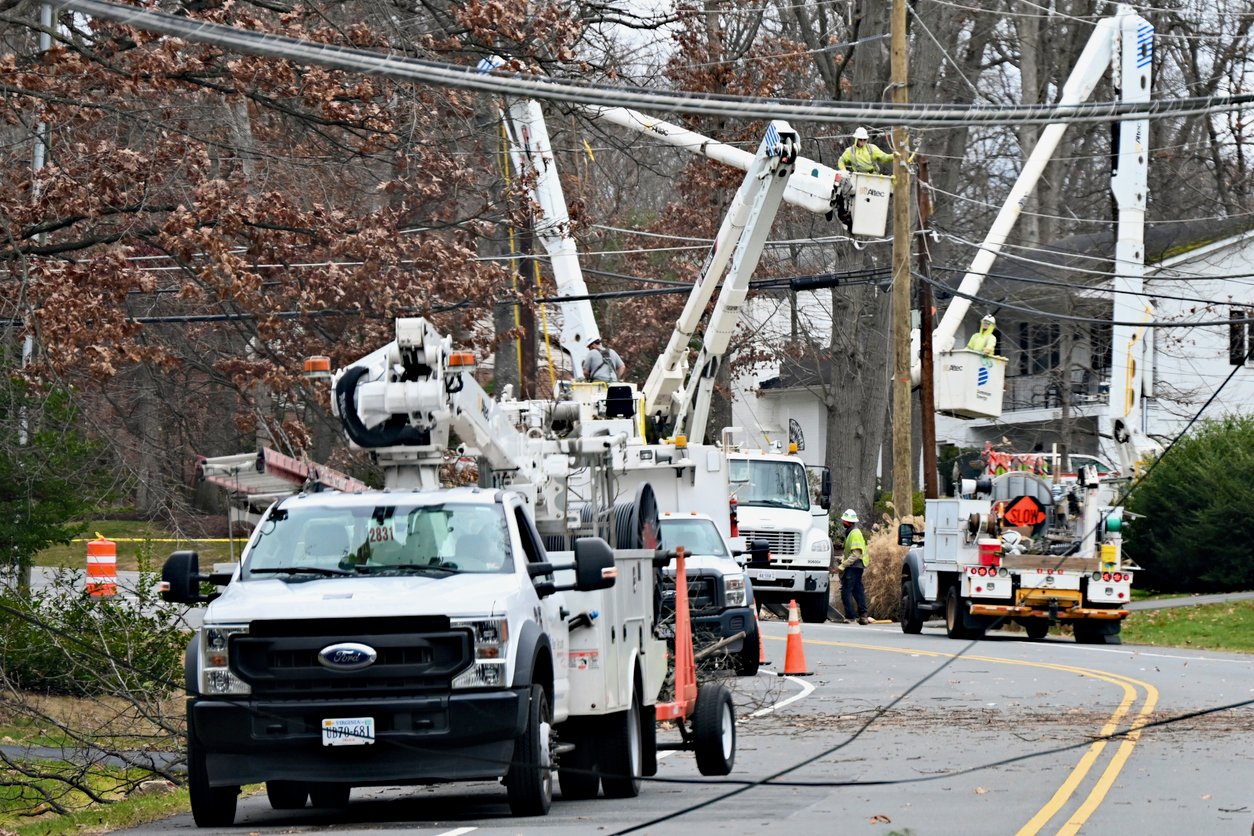Hurricane Strategy for Fleets: 6 Best Practices to Manage Fuel During Hurricane Season

Each year, the Atlantic hurricane season — June 1 through November 30 — presents numerous challenges for fleet managers across the Gulf Coast, Southeast, and Eastern Seaboard. From disrupted supply chains to vehicle damage and safety risks, the potential for operational chaos and unpredictability is always present.
However, as the proverb goes, “experience is the greatest teacher.” To that end, fleet managers have learned valuable lessons from past hurricane seasons and adopted smarter hurricane strategies and best practices to protect assets, promote safety, and ensure business continuity when a hurricane strikes.
Hurricane Katrina: Lessons Learned
Numerous resources are critical when a hurricane strikes. Fuel is undoubtedly top of the list. It’s the lifeblood of fleet operations. Fleet managers have learned, perhaps the hard way, that strategic fuel management during hurricane season involves more than just vehicles and equipment with full tanks.
Effective management requires planning, preparation, strong partnerships, and, yes, lessons learned.
Hurricane Katrina in 2005 was one of the most disruptive storms to the U.S. fuel supply in recent history. Its direct hit on the Gulf Coast — a region with a large concentration of oil rigs, refineries, and pipelines — led to severe fuel supply issues. Over 20% of U.S. domestic oil production and about 10% of refining capacity were disrupted.
Gasoline prices spiked overnight, leading to widespread fuel shortages and panic buying, particularly in the Southeast and along the Eastern Seaboard.
For fleets, the impact of Katrina was significant:
- Fuel rationing was introduced in some areas, limiting the amount of fuel fleets could purchase
- Several fleets had to limit routes, delay deliveries, or prioritize critical missions due to inadequate fuel supply
- With price spikes, large fleets saw operating costs significantly increase, while smaller fleets were financially strained or temporarily shut down due to fuel price volatility
Katrina exposed how vulnerable fleet operations were to fuel supply disruptions and price spikes. The lessons learned prompted long-term changes in how fleets plan for fuel resilience, including:
- Reevaluating fuel sourcing and storage — adding on-site fuel storage tanks or having contracts with multiple suppliers through a supplier diversity program
- Investing in fuel-efficient vehicles or considering alternative fuels
- Adopting telematics to monitor and optimize fuel usage and routing —automated vehicle location (AVL), GPS, and aboveground fuel tank monitoring
Hurricane Strategy for Fleets to Stay Ahead: Best Practices
The National Oceanic and Atmospheric Administration (NOAA) is predicting a more active than average Atlantic hurricane season this year — 13 to 19 storms, six to 10 of which will become hurricanes.
No one knows if one of these storms could be as devastating as Hurricane Katrina. However, building on lessons learned from past Atlantic hurricane seasons and leveraging the following six best practices, one thing is sure — fleet managers can ensure smarter fuel resilience and management when it matters most.
1. Pre-Hurricane Planning Is Essential
If you wait to obtain fuel after a hurricane strikes, you are at a disadvantage and putting your operations at risk. Have a fuel plan in place that includes:
- Pre-negotiated contracts with multiple fuel suppliers
- Emergency fueling guaranteed
- Onsite fuel storage for priority vehicles
- Identification of critical routes and vehicles that need fuel first
2. Ensure Communication Is Part of Your Fuel Strategy
When a hurricane strikes, chaos follows. Without a clear communications plan, fuel can get misallocated or wasted. Real-time updates are crucial. Keep key players in the loop and your fuel managed effectively by:
- Using GPS, AVL, telematics, and tank monitoring technology to monitor fuel levels and usage, allowing dispatch teams to make informed decisions quickly
- Maintain real-time communication with both fuel suppliers and drivers to prevent delays or misallocations
3. Make Fuel Efficiency a Priority
Before, during, and after a hurricane strikes, every drop counts. Ensure business continuity by training drivers and teams in fuel-saving measures, including:
- Avoiding unnecessary idling
- Optimizing routes for efficiency
- Limiting the use of non-critical vehicles
4. Consider Diversifying Fuel Sources
Relying solely on gasoline or diesel fuels is risky in a crisis. Diversifying your fuel sources gives your fleet more flexibility and options when traditional supplies are compromised. Keep your fleet moving by:
- Weighing the pros and cons of alternative fuels, in addition to hybrid and electric vehicles
- Using portable fuel tanks
- Looking into contracted mobile refueling services with your provider
5. Build and Maintain Strong Partnerships
When a hurricane strikes, your relationship with vendors and the community can determine how quickly you can obtain fuel. Ensure you have the fuel you need when you need it by:
- Coordinating logistics with fuel suppliers in advance
- Collaborating with local governments and emergency teams
- Establishing mutual support agreements with other fleets or businesses in the community
6. Evaluate, Then Improve
Each hurricane season provides insights into what worked, what didn’t, and where your fuel strategy can be improved. Make sure you’re even better prepared to respond when the next hurricane strikes by:
- Evaluating fuel usage patterns and bottlenecks
- Updating your emergency fuel strategy accordingly
- Training drivers and staff regularly on emergency fuel protocols
Alleviating Uncertainty
Atlantic hurricane season will always bring uncertainty, but your fuel strategy doesn’t have to be up in the air. By learning from past storms, such as Katrina, and leveraging best practices, you can better protect your operations, teams, the community, and bottom line.
Fuel resilience and effective fuel management are built over time, long before a hurricane hits or hurricane season begins. Lesson learned.
Explore our curated library of related content to help devise your fleet’s hurricane strategy this season:
The Importance of Emergency Fueling During a Hurricane
The Fleet Managers Guide to Emergency Prep